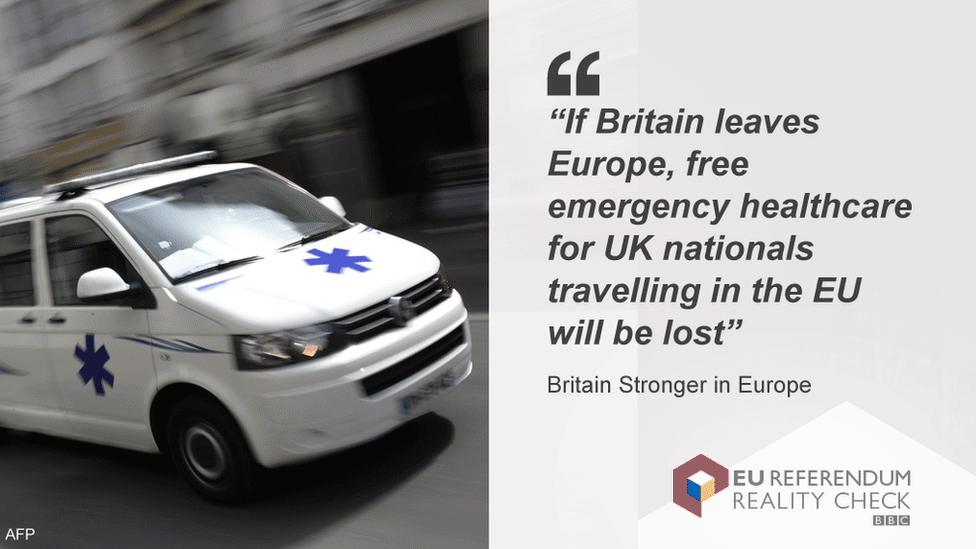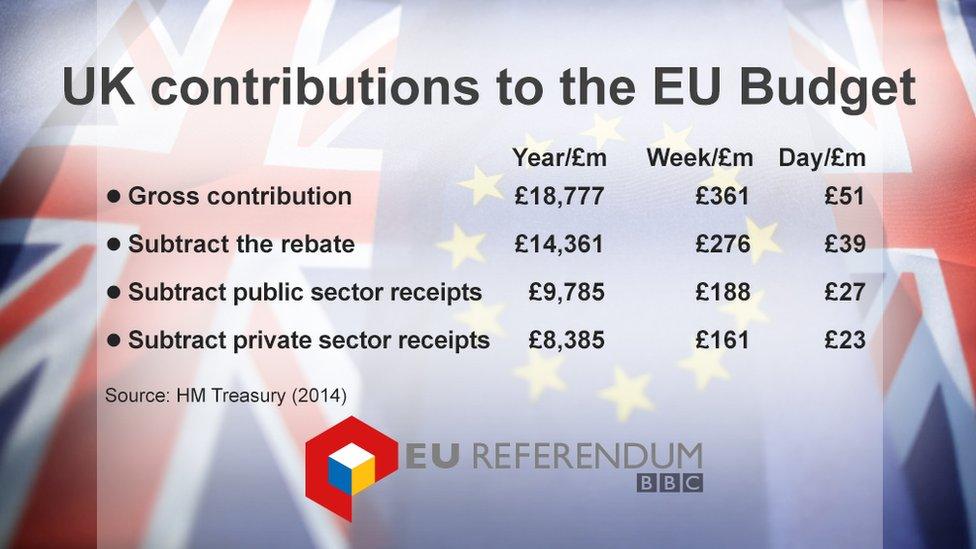Reality Check: What would Brexit mean for health costs?
- Published

On Tuesday, the Vote Leave campaign published the Department of Health figures, which show that the UK pays an average of £773m a year to other EU countries for the medical treatment of UK nationals, while it receives only £51m a year back for treating EU nationals here.
The campaign concluded that "health tourism from the EU has cost us billions".
This is not the case, because the figures show the amount the UK pays for having its citizens treated elsewhere in the EU, and is not the amount the UK spends treating the citizens of other EU countries.
But is the Britain Stronger in Europe campaign right when it says that ending the current system would force UK holidaymakers to pay the full cost of medical treatment when they fall ill or suffer an accident in an EU country? Would it leave them with a bill of £773m a year?
Treating UK holidaymakers when they get sick or have an accident in another EU country is only one part of the average figure of £773m a year. The sum also includes the cost of medical care for UK pensioners who live in another EU country, and the cost of treatments that the NHS funds for UK patients in other EU countries.
Citizens of all EU countries can get the European Health Insurance Card (EHIC), which entitles them to state-provided emergency medical treatment within the EU country they are visiting.
The treatment received is identical to the treatment the nationals of that country get. The EU country that provided the treatment can claim the cost of it from the home country of the patient. The EHIC covers Norway, Switzerland, Iceland and Liechtenstein as well, even though they are not EU members.
The average annual figure of £773m also includes the money the UK pays to other EU countries for providing healthcare to UK pensioners who have retired there.
Under EU rules, each country is required to reimburse the healthcare costs of its pensioners residing in other EU countries. UK pensioners receive an S1 form when they leave the UK, which they then register with the local health authority in the EU country where they end up. The host EU country will provide them with healthcare that is identical to the provision that local pensioners receive, and can then ask the UK to reimburse the cost of the care provided.
Reciprocal deals
There are a few other categories of citizens who may be entitled to an S1 form. Workers paying National Insurance contributions in the UK but working temporarily in another EU country would have their healthcare costs reimbursed by the UK.
The UK does not pay for the healthcare of UK citizens who retire to other EU countries before they reach retirement age, nor for those who worked and lived in the EU country where they retired and have therefore qualified for the pension of that country as well.
Would British holidaymakers have to pay for emergency medical treatment if the UK left the EU? That would not necessarily have to be the case.
The UK already has reciprocal deals with a number of countries,, external including Australia and New Zealand, under which visitors can receive free urgent treatment. It could agree similar deals with EU countries.
The situation becomes more complicated with the other healthcare rights of UK citizens in the EU, but the final outcome would depend on the post-Brexit deal negotiated.
Reality Check verdict: Not necessarily as the UK could agree reciprocal deals on emergency healthcare like the ones it already has with a number of non-EU countries around the world.


READ MORE: The facts behind claims in the EU debate

- Published22 February 2016

- Published5 April 2016
